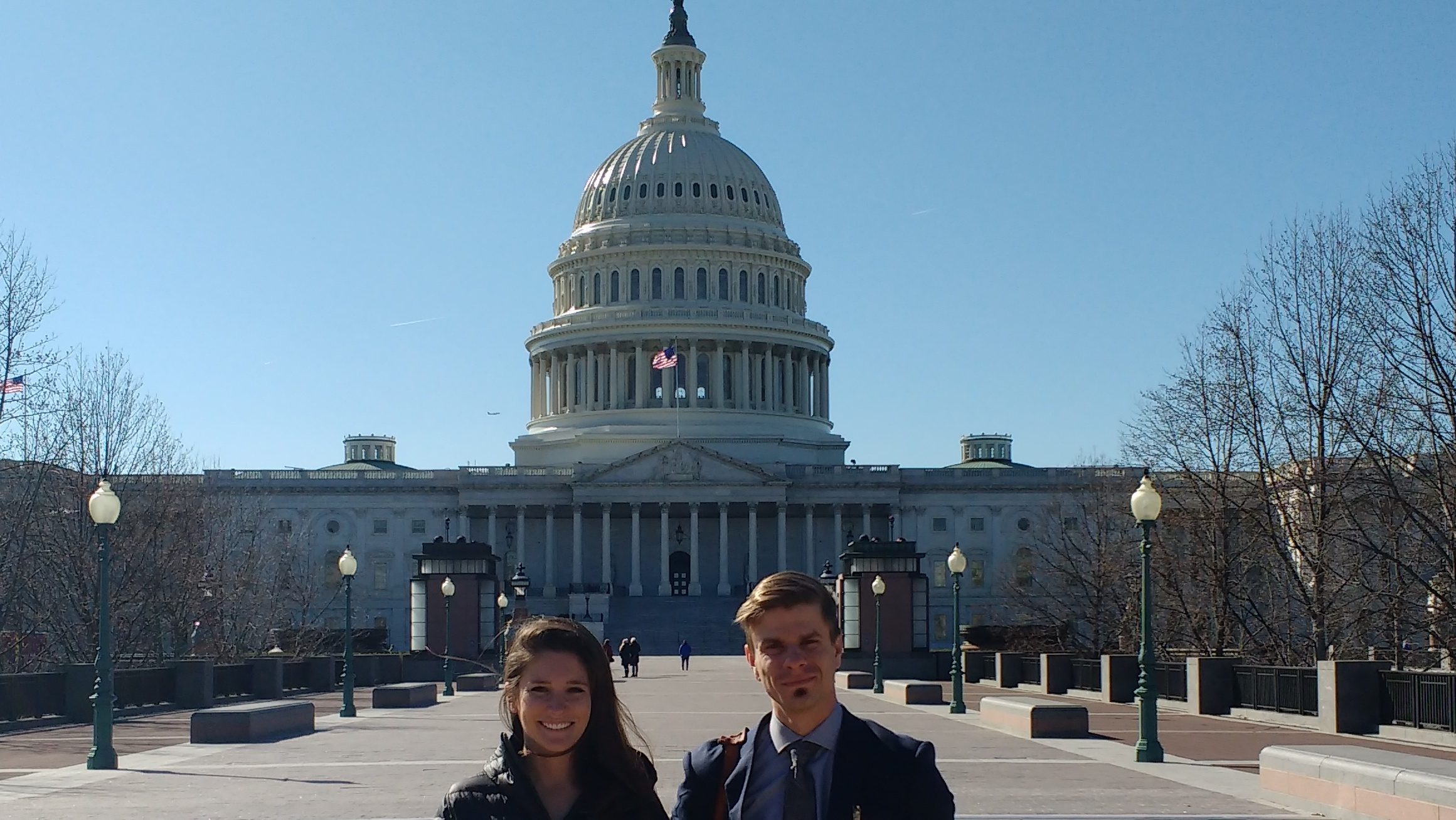A Trip to the Hill

Matthew Jurjonas, PhD Candidate, Department of Parks, Recreation and Tourism Management, College of Natural Resources, NC State, wrote this account of a recent trip to Washington, DC. His advisor is SE CSC Investigator Erin Seekamp.

Tunnels between office buildings, subterranean cafeterias, pressed suits, and rail cars to get to meetings – this wasn’t my campus cubicle anymore. This trip to “the Hill” with the Southeast Climate Science Center (SE CSC) to ensure that the eight national centers continue to do applied research in climate adaptation provided a new type of clarity to where research fits into the big picture. My role was to contribute a description of my social science fieldwork on climate change adaptation in the lowland communities of eastern North Carolina facing sea level rise. Following the lead of the Center’s staff, I quickly learned valuable skills, which I implemented as the day progressed. Years of work had to be transformed into compelling seconds on this stage, and even then, I worried the message might be lost to busyness, or botched wording. With a handshake, a few shared pleasantries, and a smile, the SE CSC had the floor for conveying direct impact in helping states adapt to climate impacts. Support for the crucial staff and dozens of graduate students, and more broadly, years of climate adaptation research hinged on the reception of the message. The congressional staffers listened for activities and best practices that would work to gain their employer’s support, and the representatives themselves empathetically affirmed that of course science is important and needs a place in the budget. Bi-partisan signatures were important for demonstrating support for the applied research being conducted on the ground. As a graduate student, the trip demystified some of the mechanics of federal funding through seeing first hand that access to taxpayer dollars for a public service – that is, research and the subsequent creation, refinement, and application of knowledge – can depend on clearly articulated “so what” messages, etiquette, and an earnest effort to be part of the process. Moving forward in my career, I know that a brief elevator pitch might be one of the most important things I ever say about my work. I will be ready.
- Categories: